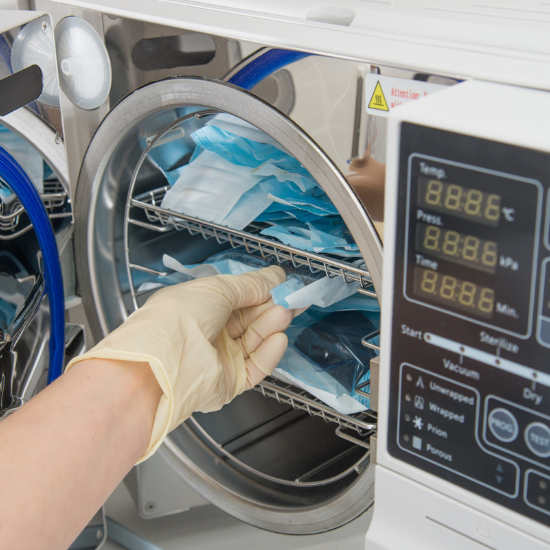What is a Sterile Processing Technician?
By: Valerie Smith, RN
August 2023
A sterile processing technician may have many names, including central service technician or central service professional. Sterile processing technicians work in the central processing department of hospitals, clinics, or physician offices to prevent infection of medical instruments used in medical exams, surgeries, and clinical procedures by sterilizing, cleaning, processing, assembly, storage, and distribution.
Roles and Responsibilities of a Sterile Processing Technician
- Preparing and delivering clean and sterilize medical equipment
- Wrapping and organizing sterilized medical equipment into instrument trays
- Allowing the physician easy access to surgical gloves and gowns before a medical procedure
- Collecting, sorting, and decontaminating medical equipment

- Preparing and packing decontaminated medical equipment for sterilization
- Operating, monitoring, and performing maintenance of sterilization equipment
- Examination of medical equipment for cleanliness
- Reporting problems with sterilization equipment or requesting replacement equipment
- Maintaining accurate sterilization, maintenance, and equipment records
- Managing inventory, reordering supplies, and verifying expiration dates
- Appropriate disposal of medical waste
Education and Training
Sterile processing technicians must have a high school diploma or equivalent with on-the-job training. Some sterile processing technicians must complete 42 hours of in-hospital training and an online program to earn a certificate in a sterile processing program. However, some programs may take two months to two years to complete.
Certification
Sterile processing technicians have two options to receive certification, Certification Board for Sterile Processing Distribution (CBSPD) and the Certified Registered Central Service Technician (CRCST) through the Healthcare Sterile Processing Association. Requirements for certification vary between the two credentials, including working as a sterile processing technician minimums, education, and becoming a member of the certifying organization. Both certifications require the candidate to complete and pass an exam, and the certification is valid for five years. Sterile processing technicians who complete formal training and are certified are more marketable and may receive a job offer quicker. In addition, some states require sterile processing technicians to be certified, including Connecticut, New Jersey, Pennsylvania, New York, and Tennessee. Regulations are evolving in other states to require sterile processing technicians to receive certification so make sure to check with your states requirements
Career Advancement
Sterile processing technicians may advance their careers as a supervisor of other technicians. With additional education, sterile processing technicians may become surgical, medical laboratory, or other medical professionals.
Salary and Demand
According to the Bureau of Labor Statistics, sterile processing technicians earn a mean annual wage of $44,940 as of May 2022*. In addition, the Bureau of Labor Statistics projects the demand for sterile processing technicians to grow by 6% from 2022 to 2032.
